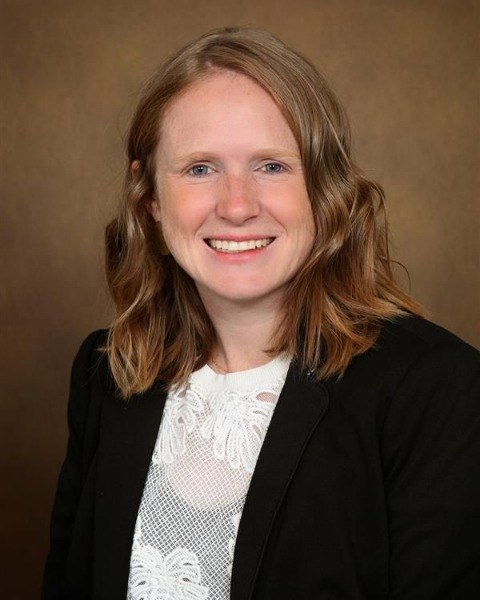Impact of Nurse-Led Rounds in a Cardiothoracic ICU
-

Caitlin Blaine, PA-C, MSHS
Physician Assistant
University of Colorado Anschutz Medical Campus
Aurora, CODisclosure information not submitted.
-

Alexis Keyworth, PA-C, MSHS
Physician Assistant, Cardiothoracic ICU
University of Colorado Anschutz Medical Campus
Aurora, CODisclosure information not submitted.
-
LB
Lisa Bauers, MSN, ACNP-BC, CCRN
Instructor, Cardiothoracic ICU
University of Colorado School of Medicine, United StatesDisclosure information not submitted.
-
MF
Margaret Forbes, AGACNP-BC,
Instructor, Cardiothoracic ICU
University of Colorado, Anschutz Medical Campus, United StatesDisclosure information not submitted.
-
NM
Nora Metz, NA
Instructor, Cardiothoracic ICU
University of Colorado, Anschutz Medical Campus, United StatesDisclosure information not submitted.
-
SZ
Sarah Zimmerman, PA-C, MPAS
Instructor, Cardiothoracic ICU
University of Colorado, Anschutz Medical Campus, United StatesDisclosure information not submitted.
-
EP
Erica Pratt, RN, BSN, CCRN
Nurse Manager, Cardiothoracic ICU
University of Colorado, Anschutz Medical Campus, United StatesDisclosure information not submitted.
-
JK
John Karels, RN, BSN, CCRN
Interim Nurse Manager, Medical Surgical Progressive Care Unit
University of Colorado, Anschutz Medical Campus, United StatesDisclosure information not submitted.
-
CM
Catherine Mickey, RN, BSN, CCRN-CSC
Clinical Nurse Educator, Cardiothoracic ICU
University of Colorado, Anschutz Medical Campus, United StatesDisclosure information not submitted.
-
SG
Samuel Gilliland, MD
Assistant Professor, Department of Anesthesiology and Critical Care
University of Colorado, Anschutz Medical Campus, United StatesDisclosure information not submitted.
-
TT
Timothy Tran, MD
Assistant Professor, Department of Anesthesiology and Critical Care
University of Colorado Hospital, Department of Anesthesiology and Critical Care, United StatesDisclosure information not submitted.
First Author(s)
Co-Author(s)
Title: Impact of Nurse-Led Rounds in a Cardiothoracic ICU
INTRODUCTION/HYPOTHESIS:
Nurses are an integral part of multidisciplinary rounds in the cardiothoracic intensive care unit (CTICU), providing trends, data and input that are crucial in developing a plan of care for these highly acute and complex patients. A nurse-led rounds model was developed to elevate the bedside nurse role as a leader in rounds with goals to improve nursing attendance on rounds, to enhance nurse-to-provider communication, and to better document and report key data points.
Methods:
Pre-intervention data including nursing presence on rounds, reporting of RASS and/or CAM score, and last bowel movement was collected for 7 days the week prior to initiating the new rounding model. The new model included the initiation of rounds with the bedside RN presenting key information utilizing a checklist developed by stakeholders. A survey was also administered to assess if nurses view their role as integral to the rounding process and consider their input valued by the provider team.
Results:
Reporting of CAM score improved post-intervention (30% pre-intervention vs 88.9% at 11 weeks and 70% at 36 weeks post-intervention). Nursing attendance on rounds was 18.18% pre-intervention and remained low at 11.11% at 11 weeks and 20% at 36 weeks post-intervention. Bowel movement reporting remained high as a control (69.2% pre-intervention vs 77.8% at 11 weeks and 90% at 36 weeks post-intervention).
Prior to intervention, when asked to respond to the statement “my role on the CTICU team includes being an important and integral part of daily rounds,” 20.83% strongly agreed, 37.5% agreed, 8.33% neither agreed nor disagreed, 29.17% disagreed, and 4.17% strongly disagreed. Following intervention at 4.5 months, 100% of nurses either agreed or strongly agreed with the statement.
Conclusions:
Implementation of nurse-led rounds improved consistency of obtaining vital metrics, including the CAM assessment which is critical for optimal patient care as delirium as been shown to increase mortality. The model, however, had little impact on nursing attendance on rounds.
In addition, the new rounding model also elevated the role of the bedside nurse in multidisciplinary rounds, improving a sense of value and collegiality between providers and the nursing staff.
